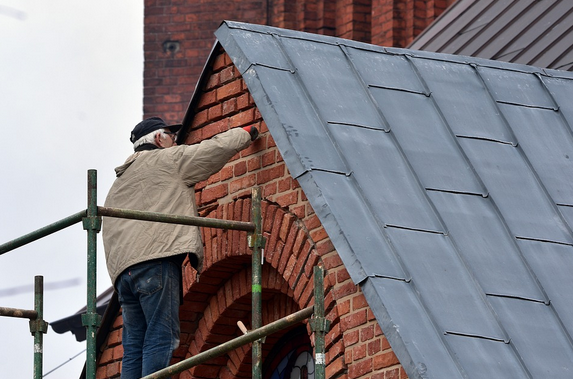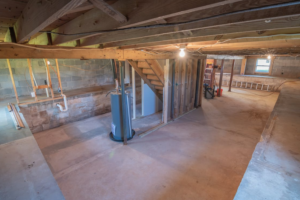Are you dreaming of turning that fixer-upper into your dream home? If so, the FHA 203(k) loan might be your golden ticket. This unique financing option allows homeowners to roll renovation costs into their mortgage, making it easier to tackle those much-needed updates. However, knowing the rules and limits before ensuring yourself qualify for this loan can feel like wandering through an endless maze without a map. So check out this well-researched article, How to Qualify For an FHA 203k Loan in California, before you execute the plan.
Hidden regulations could easily trip you up on your journey toward home transformation, so make sure you’re getting the basics right. These crucial elements of the FHA 203(k) loan could either pave your path or throw obstacles in your way as you embark on this renovation adventure!
Minimum Repair Costs
One of the first things to understand about FHA 203(k) loans is the minimum repair costs. The program requires that renovation projects meet a specific threshold, which can catch some homeowners off guard. For standard 203(k) loans, the minimum repair amount typically starts around $5,000. This ensures that you’re making meaningful improvements rather than just minor cosmetic fixes. If your project falls below this limit, you won’t qualify for funding through this loan type. It’s essential to plan ahead and scope out your renovations carefully.

Mandatory HUD Consultant
A HUD consultant helps navigate the complexities of your project. They assess the property and ensure that all proposed renovations comply with FHA guidelines. Their expertise can get you out of trouble, which will cost you a fortune. Moreover, this consultant prepares necessary documentation for both lenders and contractors. So what will you get? Definitely, you’ll feel less stress for you as they handle communication between all parties involved. However, note that their services are mandatory if you’re planning extensive repairs or your total renovation costs exceed $35,000.
No Luxury Home Upgrades Allowed
Another significant limitation is the prohibition of luxury home enhancements. This means you won’t be able to transform your space into a high-end oasis with lavish features. Items like swimming pools, outdoor kitchens, or elaborate landscaping are off-limits. The focus here is on practicality and necessity rather than indulgence. The goal of this program is to improve safety and livability without straying into extravagant territory. These rules exist to ensure that funds are directed toward essential repairs and improvements that benefit livable homes.
Licensed Contractors Only

If you’re thinking of getting an FHA 203(k) loan, prepare for a strict requirement: only licensed contractors can touch your renovation project. This isn’t just a suggestion; it’s a rule designed to ensure quality and safety. Hiring someone without the proper licenses can jeopardize your funding. If you want smooth sailing through the loan process, stick with the professionals who know their stuff. Licensed contractors bring experience and accountability to the table. You’ll likely need to provide documentation of their credentials during the application and approval stages. Taking shortcuts here could lead to delays or even rejections.
So, while you may dream of turning your house into a mansion, this isn’t the path for those aspirations. Sticking to basic renovations can feel restrictive, but remember—it’s all about creating a solid foundation for future value in your home without overextending it financially.…







 When it comes to using organic fertilizers, proper application techniques are key to maximizing their effectiveness. But note that Xuqing Li et al. at MDPI mentioned that organic fertilizers work best when they are evenly distributed throughout the soil. This ensures that nutrients are available to plants in a consistent manner, promoting healthy growth and development. Here are a few tips on how to apply these natural soil enhancers.
When it comes to using organic fertilizers, proper application techniques are key to maximizing their effectiveness. But note that Xuqing Li et al. at MDPI mentioned that organic fertilizers work best when they are evenly distributed throughout the soil. This ensures that nutrients are available to plants in a consistent manner, promoting healthy growth and development. Here are a few tips on how to apply these natural soil enhancers.

 Imagine having your very own home theater right in your basement. You can turn this space into a cinema-style sanctuary with a little creativity and planning. Invest in a big-screen TV or projector, comfortable seating like plush sofas or cozy recliners, and surround sound speakers to create an immersive movie-watching experience. Add dimmable lighting and a popcorn machine; you’ve got the perfect spot for family movie nights or entertaining friends.
Imagine having your very own home theater right in your basement. You can turn this space into a cinema-style sanctuary with a little creativity and planning. Invest in a big-screen TV or projector, comfortable seating like plush sofas or cozy recliners, and surround sound speakers to create an immersive movie-watching experience. Add dimmable lighting and a popcorn machine; you’ve got the perfect spot for family movie nights or entertaining friends.
 Turn your basement into a guest suite or an Airbnb rental to welcome visitors or generate some extra income. Invest in a comfortable bed, a small kitchenette, and a private bathroom to create a cozy and self-contained living space. Add thoughtful amenities like fresh linens, toiletries, and a small welcome basket to make your guests feel at home. If you decide to rent it out, it could become a fantastic source of passive income.
Turn your basement into a guest suite or an Airbnb rental to welcome visitors or generate some extra income. Invest in a comfortable bed, a small kitchenette, and a private bathroom to create a cozy and self-contained living space. Add thoughtful amenities like fresh linens, toiletries, and a small welcome basket to make your guests feel at home. If you decide to rent it out, it could become a fantastic source of passive income.

 Also known as discount points, getting mortgage points can be a golden ticket to get a much lower interest rate. But what exactly are mortgage points? Essentially, these are fees paid upfront to your lender in exchange for a reduced interest rate over the life of your loan. By purchasing mortgage points, you essentially invest in lowering your long-term interest costs. Each point typically costs 1% of the total loan amount and can lower your interest rate by about 0.25%. For example, if you have a $300,000 loan and buy two points, it would cost $6,000 upfront but could cut down thousands of dollars over time.
Also known as discount points, getting mortgage points can be a golden ticket to get a much lower interest rate. But what exactly are mortgage points? Essentially, these are fees paid upfront to your lender in exchange for a reduced interest rate over the life of your loan. By purchasing mortgage points, you essentially invest in lowering your long-term interest costs. Each point typically costs 1% of the total loan amount and can lower your interest rate by about 0.25%. For example, if you have a $300,000 loan and buy two points, it would cost $6,000 upfront but could cut down thousands of dollars over time.
 Adding garden edges can also give your garden beds a finished look. Garden edges can be made from concrete, stone, brick, or wood. They are usually about six inches wide and 18 inches tall. You can use them to define the borders of your garden beds and to keep mulch and soil from washing away. Garden edges are relatively easy to install, but you need to ensure they are level with the ground. Otherwise, they could create trip hazards.
Adding garden edges can also give your garden beds a finished look. Garden edges can be made from concrete, stone, brick, or wood. They are usually about six inches wide and 18 inches tall. You can use them to define the borders of your garden beds and to keep mulch and soil from washing away. Garden edges are relatively easy to install, but you need to ensure they are level with the ground. Otherwise, they could create trip hazards.
 Have a look at Brooklyn Coworking Spaces – SquareFoot Blog for some of the best coworking spaces. A coworking space is a small office space shared by workers from various companies. Certain circumstances may force you to work from home completely. A perfect example is the coronavirus (COVID-19) pandemic. Coronavirus is a highly contagious disease that can spread easily through inhaling cough droplets from an infected person or touching several surfaces.
Have a look at Brooklyn Coworking Spaces – SquareFoot Blog for some of the best coworking spaces. A coworking space is a small office space shared by workers from various companies. Certain circumstances may force you to work from home completely. A perfect example is the coronavirus (COVID-19) pandemic. Coronavirus is a highly contagious disease that can spread easily through inhaling cough droplets from an infected person or touching several surfaces.
 environment where you want to set up your home coworking space. It should be an area that is less noisy with minimal disturbances. Look for a room in your home that is far from different forms of distraction. This will ensure you set up the best coworking space for your home.…
environment where you want to set up your home coworking space. It should be an area that is less noisy with minimal disturbances. Look for a room in your home that is far from different forms of distraction. This will ensure you set up the best coworking space for your home.…

 You need to hire a certified professional to work on the water or fire issues in your home. The company together with its workers have to be certified by a governmental board to prove that they are qualified for their job. The boards of certification may be an inspection, cleaning and Restoration board that gives the restoration company a chance to serve the public. This board checks whether the company or workers have the required training and whether they use the latest technology in their operations.
You need to hire a certified professional to work on the water or fire issues in your home. The company together with its workers have to be certified by a governmental board to prove that they are qualified for their job. The boards of certification may be an inspection, cleaning and Restoration board that gives the restoration company a chance to serve the public. This board checks whether the company or workers have the required training and whether they use the latest technology in their operations. The restoration company you choose should be able to attend to your emergency cases effectively. The working schedule should eliminate reluctance in giving emergency service to clients. When you have a fire or water accident, every minute counts on the range of damage, therefore, you need a professional who will attend to you in a short timeframe. You should walk away from restoration companies that keep you waiting when you need immediate attention.…
The restoration company you choose should be able to attend to your emergency cases effectively. The working schedule should eliminate reluctance in giving emergency service to clients. When you have a fire or water accident, every minute counts on the range of damage, therefore, you need a professional who will attend to you in a short timeframe. You should walk away from restoration companies that keep you waiting when you need immediate attention.…
 When you are looking for a deck contractor, this is one of the significant tips you are supposed to remember. When you are doing your research, you are likely to find out some of the best and experienced deck contractors who have been in business for long. These are the best contractors you are required to hire because they will be able to make some of the best designs you need. Avoid considering some of the contractors who have just started doing this job.
When you are looking for a deck contractor, this is one of the significant tips you are supposed to remember. When you are doing your research, you are likely to find out some of the best and experienced deck contractors who have been in business for long. These are the best contractors you are required to hire because they will be able to make some of the best designs you need. Avoid considering some of the contractors who have just started doing this job. Before you make your last decision concerning your deck contractors, ensure that you check whether a contractor you are about to hire is licensed. It is of great importance to consider hiring a contractor who is licensed because you will be on a safe side if something bad happens to your contractors while working. Therefore, do not choose those deck contractors who are not insured or licensed.
Before you make your last decision concerning your deck contractors, ensure that you check whether a contractor you are about to hire is licensed. It is of great importance to consider hiring a contractor who is licensed because you will be on a safe side if something bad happens to your contractors while working. Therefore, do not choose those deck contractors who are not insured or licensed.